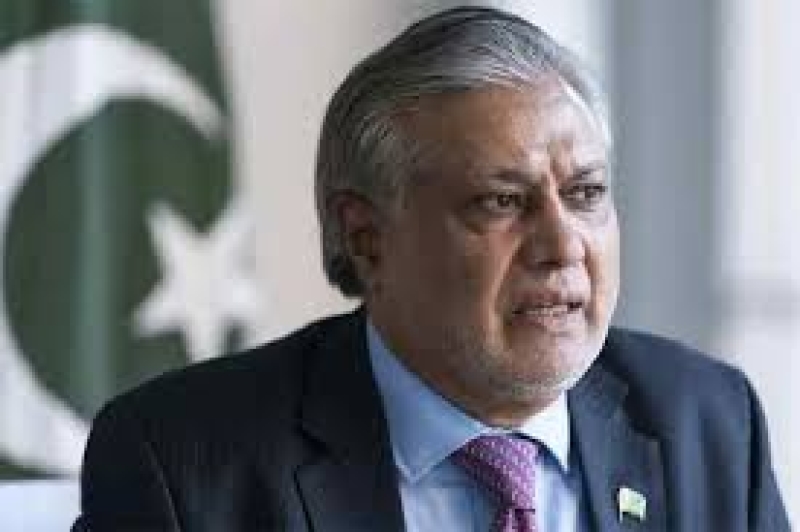- Intimidation or bloodshed cannot halt Bangladesh’s march to democracy |
- Khaleda Zia integral to an important chapter in BD history: Yunus |
- Enthusiasm marks Victory Day celebrations across Bangladesh |
- Dhaka-Delhi ties deep; to be shaped by trust, dignity, mutual respect |
- EU deploys election observation mission to Bangladesh |
Pakistan Foreign Minister Ishaq Dar to Visit Dhaka Apr 27

Pakistan’s Deputy Prime Minister and Foreign Minister Ishaq Dar is scheduled to arrive in Dhaka on a two-day official visit from April 27 to 28. The trip comes following a recent revival in bilateral diplomatic engagement between Bangladesh and Pakistan, as both sides seek to strengthen ties and discuss key areas of cooperation.
The upcoming visit was confirmed by Bangladesh’s Foreign Secretary Md Jashim Uddin during a media briefing at the Ministry of Foreign Affairs on Thursday. He said the visit was finalised during the Foreign Office Consultation (FOC), held in Dhaka earlier this month after a 15-year gap. The FOC was led by Foreign Secretary Md Jashim Uddin from the Bangladesh side and Foreign Secretary Amna Baloch from Pakistan.
"This is part of our ongoing efforts to revitalise relations between the two countries," said Jashim Uddin. "During the consultations, both sides agreed to resume high-level visits and increase institutional dialogues."
Dar's visit marks a significant diplomatic development, being the first by a Pakistani Foreign Minister to Bangladesh since Hina Rabbani Khar's visit in 2012. Officials say the visit will offer an opportunity to address a range of bilateral, regional, and multilateral issues, with the potential to deepen cooperation in areas such as trade, education, cultural exchange, and connectivity.
Asked about the possibility of signing any Memorandums of Understanding (MoUs) during the visit, the Foreign Secretary said several draft MoUs are currently under review. "A joint working group has been formed, comprising officials from the Ministry of Foreign Affairs and the Pakistan High Commission in Dhaka. They are working closely with relevant ministries to finalise the proposed agreements," he said.
The visit is also expected to follow up on discussions held during the FOC, where both sides expressed interest in expanding cooperation in economic, educational, and cultural sectors. Specific topics may include increasing trade volumes, offering academic scholarships, resuming direct air links, and facilitating visa procedures.
Responding to a question about whether Bangladesh’s Chief Adviser, Professor Dr Muhammad Yunus, would visit Pakistan anytime soon, the Foreign Secretary clarified that such a visit was not currently under discussion. "Our priority right now is the Pakistani Foreign Minister’s visit. Any other visits will be considered in due course," he said.
The Foreign Secretary also noted that this renewed interaction comes at a time when regional cooperation platforms like SAARC are under strain. Bangladesh and Pakistan, he said, both agreed on the need to revitalise SAARC in line with its founding principles and to keep its agenda free from bilateral political tensions.
Diplomatic observers see Ishaq Dar's visit as an attempt to reset ties that have seen several periods of tension over the past decade, particularly over unresolved historical issues stemming from the 1971 Liberation War. During the FOC, Bangladesh reiterated its long-standing demands, including a formal apology from Pakistan for the genocide committed by its military in 1971, the repatriation of stranded Pakistanis, and the equitable distribution of pre-1971 assets.
While those issues remain sensitive and complex, both sides have shown interest in working towards a "forward-looking partnership," as stated by the Pakistan Ministry of Foreign Affairs in a recent statement.
The upcoming visit is expected to test that aspiration and determine how far both nations are willing to go in rebuilding mutual trust and enhancing bilateral relations.

